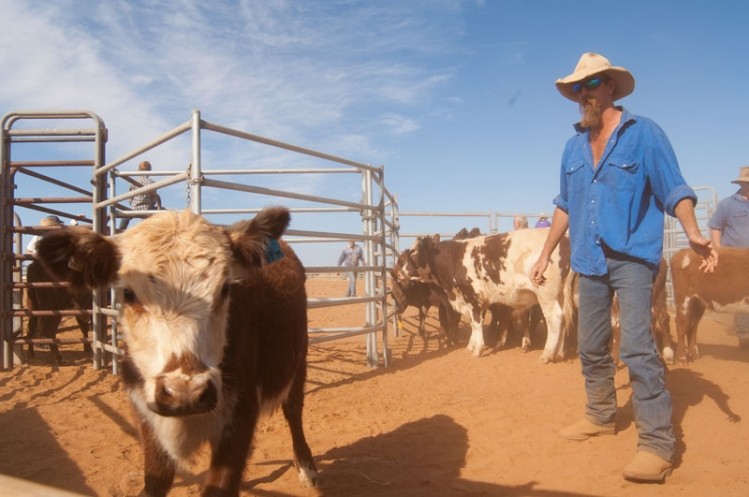



Article by: Hari Yellina
After cattle carcasses were discovered on a farm north-west of Alice Springs, a 47-year-old man was issued with a notice to appear in Yuendumu Court for one count of theft next month. The individual, who was on an Aboriginal Lands Trust [property], is accused of stealing livestock from a nearby station, according to NT Police. On neighbouring territory, a number of shot and butchered cattle carcasses were discovered. The dead cattle were discovered by Allan Martin of Mount Denison Station, a family-run farm 300 kilometres north-west of Alice Springs. Mr Martin explained, “I went there to see how many [cattle] we had and just work out how many trailers we need to take them all up.”
“I noticed drag marks coming out of the yard and decided to investigate to see if it was one of mine who had died in the yard or something. “I started looking around and discovering more and more [carcasses]. “With the exception of one, they all got their ears chopped off.” The National Livestock Identification System (NLIS) tags and the station’s unique ear mark are both removed when the ears of a beast are removed. “There are only basically two sites where the livestock might have come from,” Mr Martin added. Mount Denison Station keeps a mixed herd of Hereford, Shorthorn, and Droughtmaster-cross cattle, the same breed that was discovered dead on the adjacent property.
Mrs Martin explained, “You know your animals when you see them.” “You normally run the… [genetic breed] line of cattle.” The lands trust where the cattle were discovered used to be a cattle ranch, but it has been closed for more than 20 years. The former station in issue “used to run white Brahmans,” according to Mrs Martin, and has been destocked since it closed in the late 1990s. The livestock were a big loss for the Martin family. “They’re roughly $2,500 to $3,000 per beast on average,” Alan Martin remarked. “It’s a fairly huge loss when you’re trying to keep things operating… and you don’t have the money to buy parts and bits.” Boundary fences are frequently damaged by weather occurrences or feral animals. According to the Martin family, pastoralists have an agreement that neighbouring cattle will be returned unharmed. “You can usually count on getting one or two cattle from your neighbours. You simply receive them and return them “Mr. Martin explained.